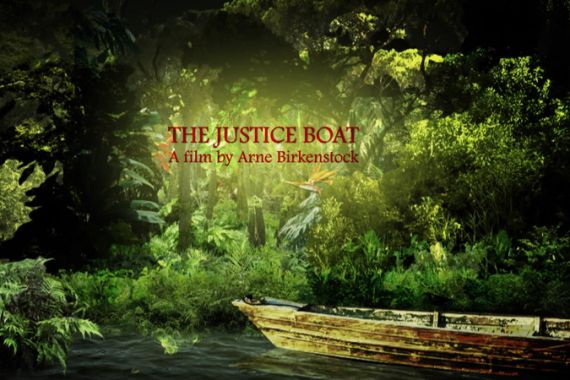
The Fight for Amazonia: The Justice Boat
Follow the woman delivering justice and medical care to the ‘invisible’ people of the Amazon Rainforest.
Editor’s note: This film is no longer available online.
| In the Brazilian Amazon, environmentalists, scientists and politicians are facing one of the most difficult challenges of our time. If the earth’s lungs collapse, the planet itself will collapse. This three-part series, The Fight for Amazonia, looks at the efforts being made to save the rainforest – not simply revealing how bleak the prospects are, but documenting the avenues that raise hope. |
Amazonia is much more than just the earth’s lungs: it is home to 20 per cent of the world’s fauna, 20 per cent of its fresh water reserves and countless animal species.
Keep reading
list of 4 itemsTurtles swimming to extinction in Malaysia as male hatchlings feel heat
Could shipping containers be the answer to Ghana’s housing crisis?
Thousands protest against over-tourism in Spain’s Canary Islands
In the 1960s and 1970s, Brazil started the conquest of the massive ancient forest in order to increase the country’s prosperity – a people without land moved to a land without people, built roads, dams and cities.
Since then, two million hectares of tropical rainforest have been burned down and cleared in the Amazon every year.
An area approximately the same size as France, 65 million hectares, has now disappeared.
Today, the earth’s largest forest is home to 20 million people: All of them have their own, usually conflicting, ideas about the future development of the Amazon region.
The Justice Boat
A film by Arne Birkenstock
For 13 years now, Judge Sueli Pini has been travelling from the provincial capital Macapá to the remote villages on the Amazon Delta.
|
To this day, the Brazilian state does not know exactly how many people live on the Amazon because many of them have no passport or birth certificate. To the authorities, these people who live in remote hamlets and villages are invisible: they have no access to social services, health care or the justice system. It is as if they do not even exist.
“These people were simply ignored and forgotten by the Brazilian state for many years.”
With her ‘justice boat’ Pini brings a wide range of state services to the population of the North Amazon region. The steam boat houses a court with a public prosecutor, bailiffs and public defenders, a medical team, including a dentist, doctor and nurses, and a passport office with civil servants and ID card forms.
But Pini has had to fight to be able to deliver these services.
“The cultural divide is even bigger than the geographical divide we have to bridge. Most of my colleagues and superiors have never been here, so they cannot appreciate how important our tours are for the locals and for the Brazilian state.”
So far she has been able to prevail – and thus make her contribution to protecting the inhabitants of the rainforest.
